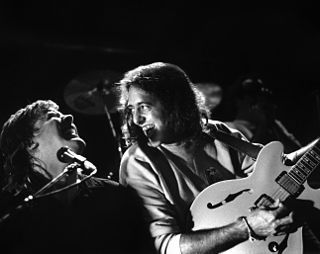A Quote by Joshua Bell
In art and music, particularly in the 20th century, there was a big period there where for something to be called profound you had to not be able to understand it.
Quote Topics
Related Quotes
The 20th century is a period defined by cultural and artistic movements. However, the 21st century creative-scape that we occupy now doesn't really have movements in the same way. Instead it's made up of diverse individuals working across various platforms simultaneously; art, architecture, film, music and literature.
The 20th century saw far greater catastrophes than September 11th, as bad as it was, and they didn't render literature or art or music irrelevant. In fact, I think that literature and art help us to understand - sometimes they provide narratives and metaphors for understanding history, for understanding recent catastrophes.
In the 20th century, we had a century where at the beginning of the century, most of the world was agricultural and industry was very primitive. At the end of that century, we had men in orbit, we had been to the moon, we had people with cell phones and colour televisions and the Internet and amazing medical technology of all kinds.
The different American experience of the 20th Century is crucial because the lesson of the century for Europe, which essentially is that the human condition is tragic, led it to have a build a welfare system and a set of laws and social arrangements that are more prophylactic than idealistic. It's not about building perfect futures; it's about preventing terrible pasts. I think that is something that Europeans in the second half of the 20th century knew in their bones and Americans never did, and it's one of the big differences between the two Western cultures.
D-Day represents the greatest achievement of the american people and system in the 20th century. It was the pivot point of the 20th century. It was the day on which the decision was made as to who was going to rule in this world in the second half of the 20th century. Is it going to be Nazism, is it going to be communism, or are the democracies going to prevail?



































